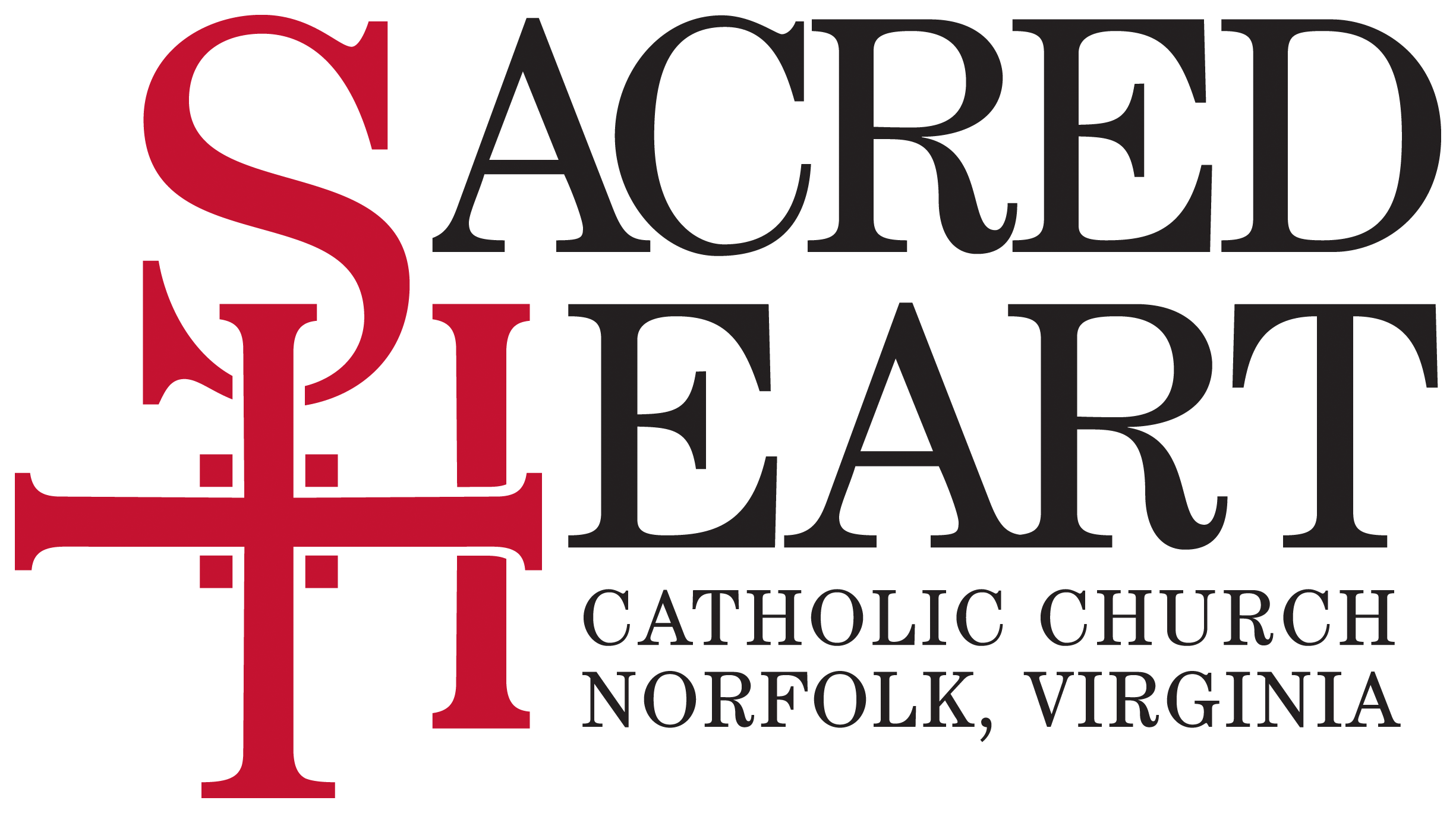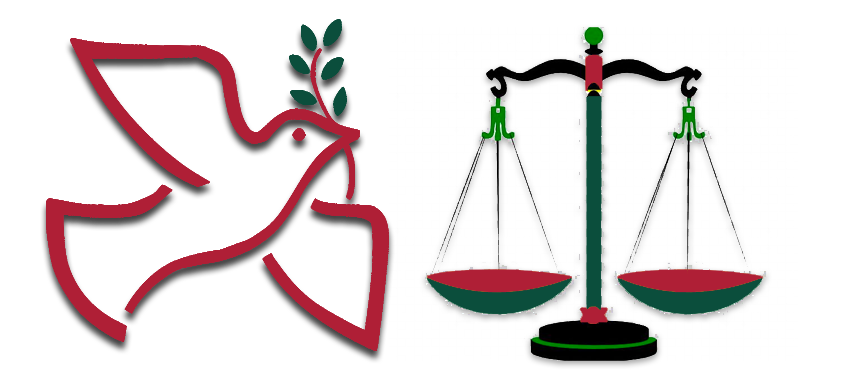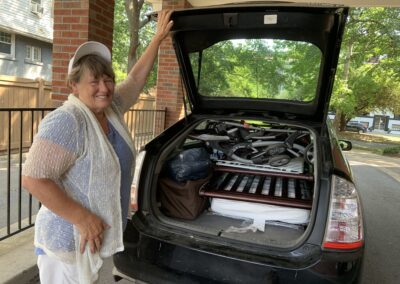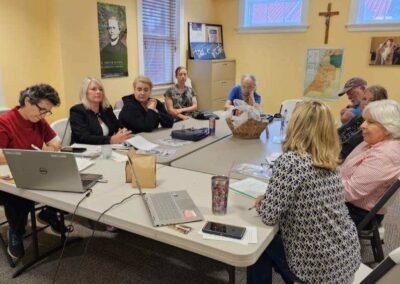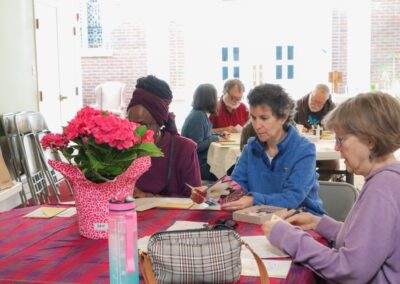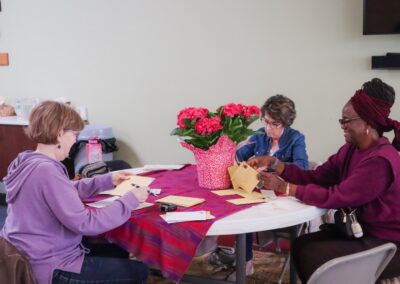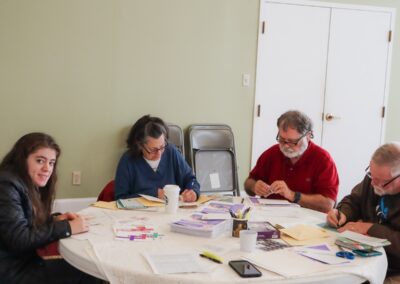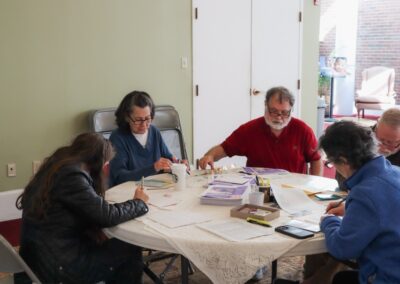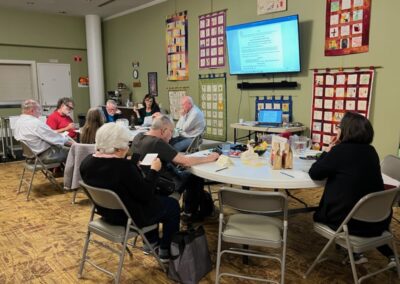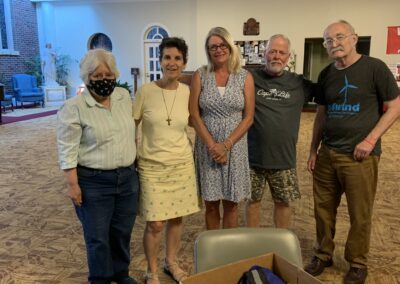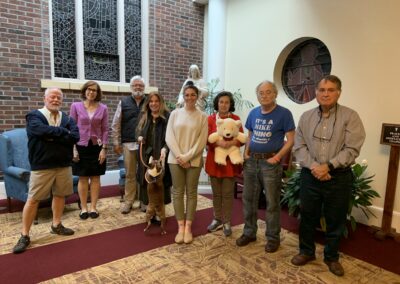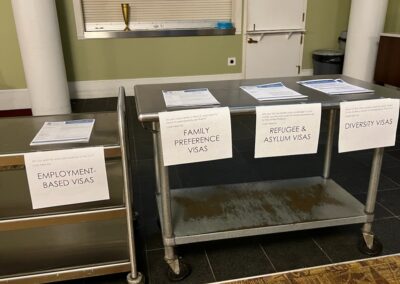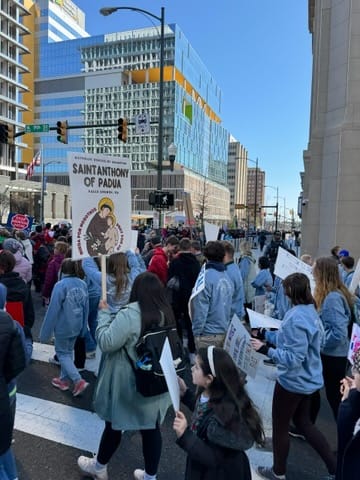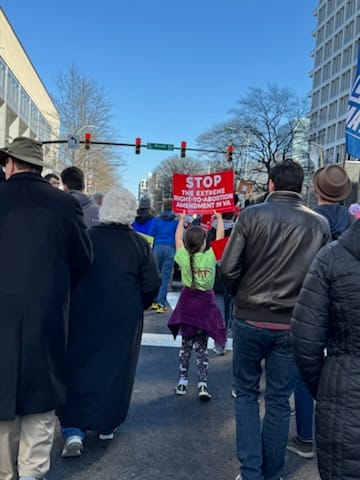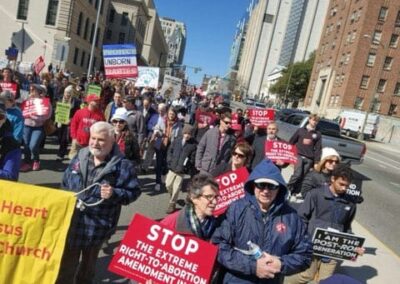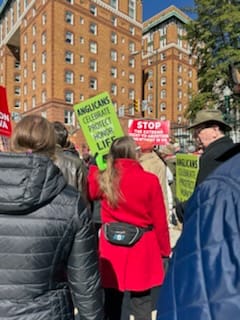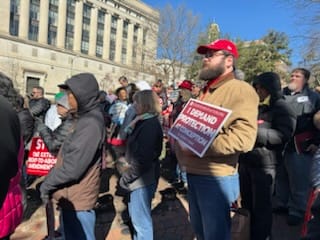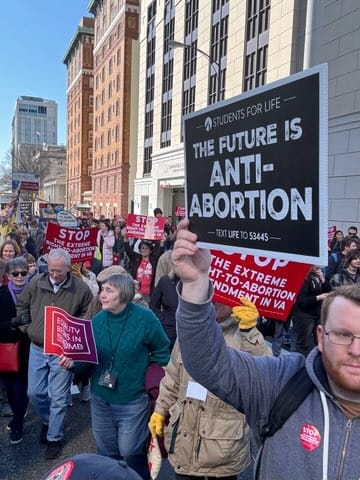OUR MISSION
To REFLECT on the church’s social teachings and the underlying causes of social problems;
And to TRANSFORM social structures through legislative advocacy, peace making and other efforts.
OUR VISION
The Social Ministry Committee encompasses social outreach (faithful action) with spirituality (through Catholic Social Teaching formation), to integrate an awareness of social justice and charity into all aspects of parish life.
We remember Neil Walsh, Past Director of Social Ministry at the Sacred Heart Church Neil Walsh Obituary (2020) – Norfolk, VA – The Virginian-Pilot (legacy.com)
OUR GOALS
Our main goal is to integrate an awareness of social justice into all aspects of parish and spiritual life.
To fulfill that goal, we will:
- Identify service opportunities within and without Sacred Heart.
- Support efforts to upgrade the soup kitchen and ensure it is clean and well maintained.
- Encourage our Pastor to continue giving homilies to address contemporary justice and peace issues.
- Be a Catholic voice with respect to civic and public issues.
- Encourage parish commitment to RESPECT the dignity of all life from beginning to natural end
- Partner with other churches, schools and organizations to serve the local community.
- Strongly support the development of Parish Stewardship (time, talent, treasure).
- Encourage an environment of open and effective 2-way communication of information and ideas, which we believe are enhanced through the use of technology and of a parish bulletin board.
CO-CHAIRS
Frank Murphy
Patricia Britz
Contact Ministry Coordinator
J&P Photos
J&P March For Life Photos
J&P Soup Kitchen Photos
What is Social Action?
Parish Social Action flows clearly from our Faith traditions and is an expression of who we are, what we believe and is firmly anchored in the Scriptures and in Church Teaching. Through the eyes of our Faith, we see every brother and sister as Jesus in disguise. Their needs are not simply social problems, or economic problems, or political issues. They are moral tragedies and spiritual tests. Parishes as local institutions have a special opportunity to exert community leadership, promote citizenship, and provide forums for discussion and action on public issues. As leaders, we need to act knowing that our values must be applied in real and complex situations and people of common faith and good will can disagree on specifics. But we are called to use our talents and resources to shape a society more respectful of the life, dignity and rights of every human person, and of God’s earth. We can examine the moral and human dimensions of public issues as people called to informed participation in the political process. We are finding ways to be political without being partisan and to involve and inform ourselves to meet our political and moral responsibilities that will ultimately strengthen our community through the witness of our parish and parishioners.
The Characteristics of Action on Behalf of Justice by Society
Compared to Direct Service, or works of Charity, the characteristics of Social Action are:
The focus is on a societal problem, not on an individual person or family.
(Affordable housing in our area as a community issue, not a specific family facing eviction, or homelessness)
The action may take a long time, involving research, planning, and motivating people to carry it out; and the solution will be of lasting duration.
The solution is directed towards the cause of a problem, a policy, regulation or social practice that needs changing. (i.e. a zoning ordinance, a mortgage lending policy, or addressing discriminatory sales practices)
Community leaders attempt to involve considerable numbers of people and resources in order to have sufficient influence to change policy.
The Social Ministry relationship is one of equality and cooperation with other ministries towards a common, mission, vision and goals. The relationship is one of partnership, including those who are the affected by the decisions.
Sometimes this type of ministry is controversial, since it involves formation, transformation and change.
There is ample evidence in both Jewish and Christian Scripture, as well as in the writings of our Popes and Bishops, that clarify this definition of the Christian vocation to praise and thank God through deeds of justice to the weak, powerless, and oppressed.
All In One Bulletin Notes
- Jun 2024 – All in One Bulletin Note
- May 2024 – All in One Bulletin Note
- Apr 2024 – All in One Bulletin Note
- Mar 2024 – All in One Bulletin Note
- Feb 2024 – All in One Bulletin Note
- Jan 2024 – All in One Bulletin Note
- Dec 2023 – All in One Bulletin Note
- Nov 2023 – All in One Bulletin Note
- Oct 2023 – All in One Bulletin Note
